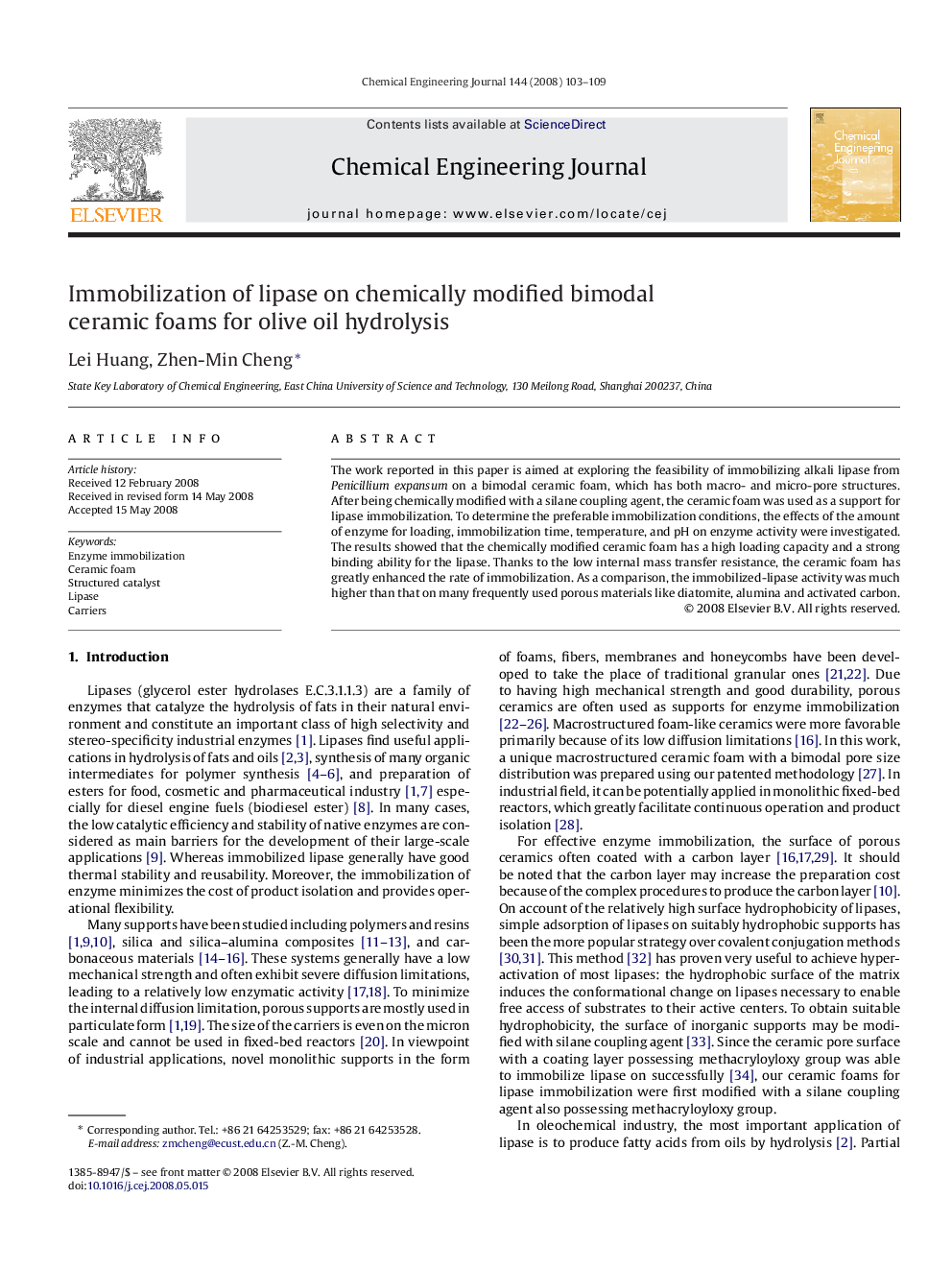| Article ID | Journal | Published Year | Pages | File Type |
|---|---|---|---|---|
| 153026 | Chemical Engineering Journal | 2008 | 7 Pages |
The work reported in this paper is aimed at exploring the feasibility of immobilizing alkali lipase from Penicillium expansum on a bimodal ceramic foam, which has both macro- and micro-pore structures. After being chemically modified with a silane coupling agent, the ceramic foam was used as a support for lipase immobilization. To determine the preferable immobilization conditions, the effects of the amount of enzyme for loading, immobilization time, temperature, and pH on enzyme activity were investigated. The results showed that the chemically modified ceramic foam has a high loading capacity and a strong binding ability for the lipase. Thanks to the low internal mass transfer resistance, the ceramic foam has greatly enhanced the rate of immobilization. As a comparison, the immobilized-lipase activity was much higher than that on many frequently used porous materials like diatomite, alumina and activated carbon.
